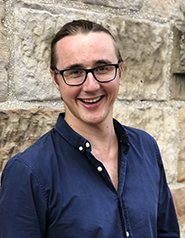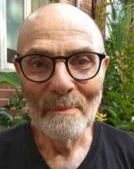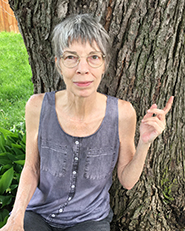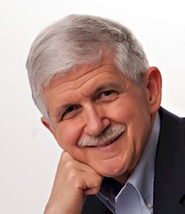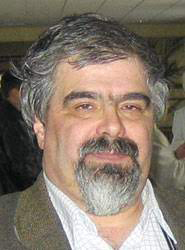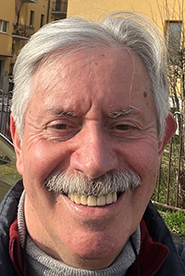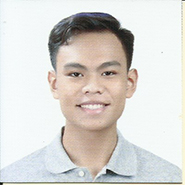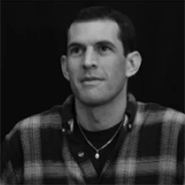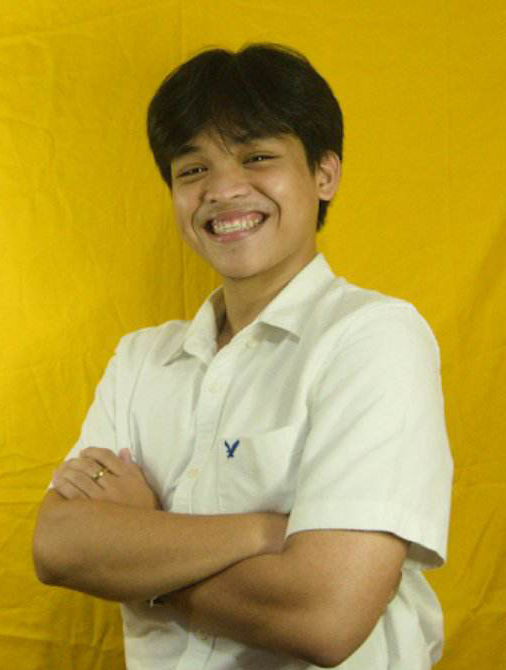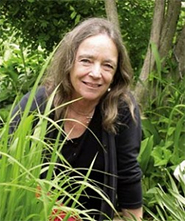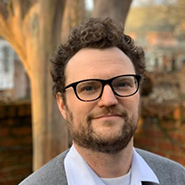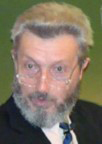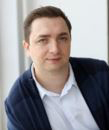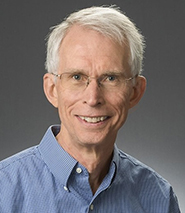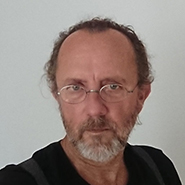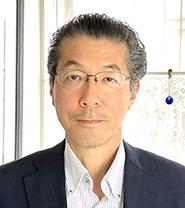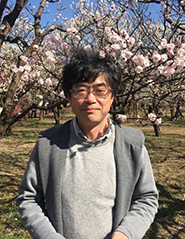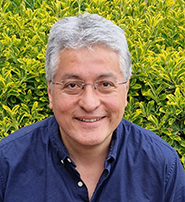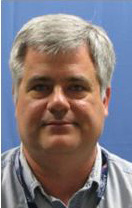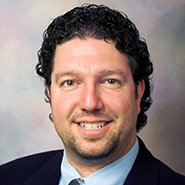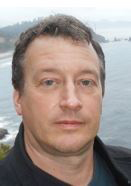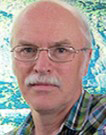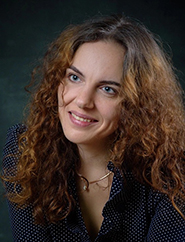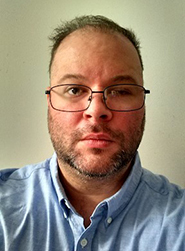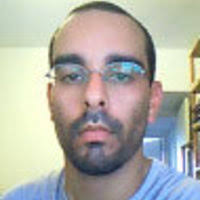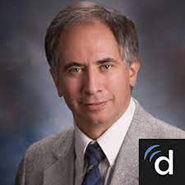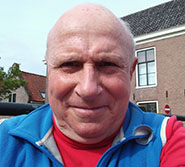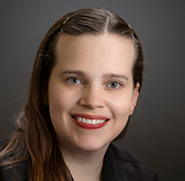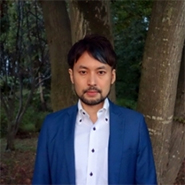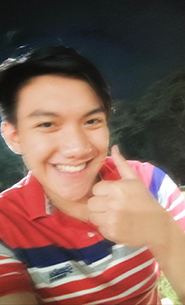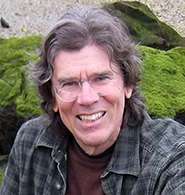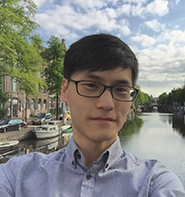| Presenters at the 2023 IBHA Conference, "Humanity on a Finite Planet: A Big History Perspective" |
Abel A. Alves
|
The Biohistory of Feminism |
| |
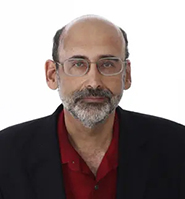 |
|
Although the term “feminism” first appeared in nineteenth-century Europe, behaviors associated with feminism have appeared across cultures in the historical record. Women form coalitions and display as alphas in the face of male resistance, countering patriarchy with deeply rooted universals also found among our primate cousins. In early modern Europe and contemporary Ghana, market women have cooperated to control resources, just as bonobo female coalitions control food and eat before males. From ancient Egypt’s Hatshepsut to Ndongo and Matamba’s Njinga Mbande, Elizabeth I of England and Catherine the Great in the early modern period, there have been highly successful historical female alphas, even as alpha females occur among nonhuman animals. If the quest to control resources, the forming of coalitions to exert power and the claiming of alpha status are behaviors associated with feminism, then there is an adaptive, evolutionary basis to the movement. There is a deep history of feminism.
Abel Alves is the author of The Animals of Spain: An Introduction to Imperial Perceptions and
Human Interaction with Other Animals, 1492-1826 (Brill, 2011), Brutality and Benevolence:
Human Ethology, Culture, and the Birth of Mexico (Greenwood, 1996), “Pets and Domesticated
Animals in the Atlantic World” (Oxford Bibliographies, 2017), and articles in The Sixteenth
Century Journal and other publications. Alves was the first recipient of the Miriam Chrisman
Award of the Society for Reformation Research. In 1997, he received Ball State's Hurley
Goodall Distinguished Faculty Award. In 2000, he was awarded BSU's Lawhead Award for
teaching in the University Core Curriculum. In 2016, he was invited to present on his research at
University College London’s international symposium “Animals in Visual Hispanism.” Among
his forthcoming works are: “Domestication: Coevolution,” in Handbook of Historical Animal
Studies, ed. Brett Mizelle, Mieke Roscher, and André Krebber (Berlin: De Gruyter, 2021); and
“Iberia’s Imagined Elephant: Animal Behavior through a Human Prism in the Sixteenth
Century,” Romance Notes 60:3 (Fall/Winter 2020). |
| Max Barnett |
6 Steps to the Anthropocene: Mapping Complexity from Foragers to the Anthropocene |
| |
In a little over 10,000 years, human societies have transitioned from small bands of hunter-gatherers to a globally connected, techno-industrial society. This paper presents a model for understanding the rise of human complexity as divided into six distinct stages. The model is intended to be easily applied in an educational settings to explain large-scale developments in human history while also being sufficiently rigorous to be applied in academic settings for comparing the complexity of human societies. To achieve the latter, the model is accompanied by a methodologic framework for measuring human complexity which incorporates population, energy flows, interconnectivity, and innovation/emergence.
This paper will present and justify both the metrics and levels of complexity in human societies. It will also examine previous attempts to build similar models in Big History and assess the challenges of creating and applying such a model. Finally, the paper will argue for the necessity of such an approach in connecting the past to the present and future. In particular, the paper will demonstrate how the model for large scale comparison in the past can be used to make projections and inform policy decisions in the Anthropocene.
Maximillian Barnett is a PhD Student, Department of History and Archaeology, Macquarie University, Sydney, Australia. He currently teaches and aids in curriculum development in the fields of world history and law. He graduated with a Masters of Research in Big History and writes on the fields of demography, geography, anthropology, world history, and future studies. The current working title for his PhD is The Fork in the Road: Mapping Alternative Responses of Human Societies to Threats to their Complexity |
| Daniel Barreiros |
Social Classes and Social Cognition in Capitalism: The enmeshment of Social Institutions and Human Ethology |
| |
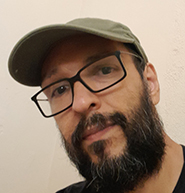 |
|
When applied to the study of complex societies, evolutionary psychological approaches can lead to a reductionist view of human social behavior that fails to accurately describe the structural complexity that arises from the multirole and multi-identity nature of human interactions. These studies often treat ingroup formation and ingroup sociality as unmediated processes, as if they emerge directly from human social ethology. As a result, these approaches end up producing strange interpretations that, for example, reclaim the "natural state" of national identities and social class behavior, as if nations and classes were somehow hardwired into human cognition. Big History, with its "play of scales," allows us to understand that human social ethology, fixed by natural selection over millions of years in primate evolution, provides archetypal structures that are expressed, suppressed, or combined by cultural evolutionary selection. It is this scalar interplay between ethology (constructed in evolutionary time) and social institutions (products of the Braudelian longue durée) that gives rise not only to the intellectual concept of social classes, but to the very set of social behaviors and expectations that effectively produce, reproduce, and reinforce class-based social inequalities in capitalist societies.
International Order and Cognitive Evolution: a Big History approach to the Concert of Europe (1815-1848)
A deep understanding of decision-making, strategy, and mobilization in the international arena can benefit from a multi-scalar historical approach. Big History, as the study of the "play of scales" between cultural, evolutionary, and cosmological processes, can be a formidable tool to enhance our ability to interpret how political actors conceive, represent, and implement strategic policies. In a world in need of peacemaking and anticipatory capacity, big historians can help track, signal, and denounce potential sources of disorder in the international system. In this paper, I propose a multi-scale analysis of the Concert of Europe (1815-1848) as a case study. As policymakers attempt to make sense of multiple systems of interrelated actors, to make decisions, and to predict the behavior of others, they employ an intricate set of mental tools created by feedback between ethological cognitive archetypes (fixed by natural selection) and cultural information (produced by these archetypes but also capable of mobilizing, suppressing, or combining these innate structures). The statesmen who gathered at the Congress of Vienna (1814-1815), in an effort to model a post-revolutionary system of political stability in Europe did so by mentally conceiving 1) the Great Powers as a single high-status individual in a social group composed of other lower-status individuals (the other European nations); 2) the Great Powers as an egalitarian ingroup, governed by consensus and protected from internal disputes. We conclude that both images, which somehow shaped the institutions and policies of the Concert of Europe, violated strict ethological expectations and were thus progressively unstable and prone to collapse unless an increased expenditure of energy (in attention, in repression) was maintained. Therefore, the failure of the Concert of Europe can be read as an indirect product of a mismatch between short-term institutions and human ethological expectations.
Daniel Barreiros is an Associate Professor at the Institute of Economics, Federal University of Rio de Janeiro, Brazil, and Professor at the Comparative History Graduate Program (PPGHC-UFRJ). He is also a researcher at the Bioethics and Applied Ethics Center. He received a PhD in Social History from the Fluminense Federal University, Niterói, Brazil. Daniel is specialist (“lato sensu”) in History of the International Relations (State University of Rio de Janeiro, UERJ), and is a U.S. Department of State Alumni from the Study of the US Institute on United States Foreign Policy (Research Fellow at the Department of Political Sciences and International Relations, University of Delaware). He is a member of the Board of Trustees and Vice-President of the International Big History Association (IBHA). His research is centered on the Big History of intersocial conflict and cooperation, which includes geopolitics and world-system analysis in a complexity and thermodynamic perspective. |
| Ken Baskin |
The Practical Application of Complexity Science to Enhance Big History. |
| |
From one point of view, complexity science is the study of the patterns that emerge as complex systems evolve. Those patterns include: the universe structured as an intricate nested network of entities, whose interconnection makes emergence possible; evolution through alternating periods of stability and transformation, often leading to the emergence of new forms; and emergent causality, as adaptive agents interact in ways that make the unanticipated possible. Focusing on the dynamics of these patterns makes it possible to see the broad scope of big history as the dance of agents working to adapt.
Ken Baskin is an independent researcher whose work integrates insights from complexity science, neuro-anthropology, and big history. After earning a PhD in English Literature in 1977, he spent fifteen years writing public-relations material for major firms. His books include Corporate DNA (1998), an examination of how to think about organizations as living things rather than just mechanisms, and The Axial Ages of World History (2014), an exploration of the similarities between the Axial Age and Modernity that he co-wrote with Moscow anthropologist Dmitri Bondarenko. Ken is currently reinterpreting religion as a way that human groups can know and adapt to the powerful forces that surround us. He lives in Philadelphia, Pennsylvania. |
| Carol J. Blakney |
The Biohistory of Feminism |
| |
Although the term “feminism” first appeared in nineteenth-century Europe, behaviors associated with feminism have appeared across cultures in the historical record. Women form coalitions and display as alphas in the face of male resistance, countering patriarchy with deeply rooted universals also found among our primate cousins. In early modern Europe and contemporary Ghana, market women have cooperated to control resources, just as bonobo female coalitions control food and eat before males. From ancient Egypt’s Hatshepsut to Ndongo and Matamba’s Njinga Mbande, Elizabeth I of England and Catherine the Great in the early modern period, there have been highly successful historical female alphas, even as alpha females occur among nonhuman animals. If the quest to control resources, the forming of coalitions to exert power and the claiming of alpha status are behaviors associated with feminism, then there is an adaptive, evolutionary basis to the movement. There is a deep history of feminism.
Carol Blakney received a Bachelor of Fine Arts degree at the University of Massachusetts in 1982, then continued on to do art history research at Mount Holyoke College, becoming project manager for The Oxford Guide to Classical Mythology in the Arts, 1300-1990s, published in 1993. She began working with Abel Alves on biohistory in 1994. From 2001 to 2006, she organized an international network of academics and activists to provide free community-specific research on environmental issues and co-developed an educational website with Catherine Kavassalis. In 2012, she opened Carol Blakney Designs at The National Stationary Show in New York and illustrated the Christmas cover for the Bas Bleu catalogue. She continues to lecture on environmental issues and biohistory. |
| Felipe Blois |
Civilization and Technology: antientropic concepts, tools and consequences |
| |
This presentation will examine the role of complex societies as antientropic catalytic structures and entities that go against the disorganizing tendency of the universe. It will also address how technology provides means to counter entropy in new and more expansive ways, through devices and techniques that can produce, utilize, and concentrate energy. Life itself represents a break in the inorganic thermodynamic patterns of the known universe. The increasing complexity produced by life, through natural evolution and social organization, creates a positive feedback in its ability to manipulate and concentrate increasing levels of energy. That is, in natural and economic terms, energy is the ability to change reality to further an intended purpose or interest. The limits of this potential increase as life develops cognitive capacities to utilize more resources, to organize itself cohesively into larger and larger groups, forging more efficient patterns of behavior through biological and social symbiosis. Such developments may expand operational energy paradigms, but their ability to break them is limited, since it does not alter the availability of relevant materials or energy resources. This is done through technology, the result of interactions between available resources, an epistemic social base, and ways of thinking for practical purposes. This constitutes an ongoing (but not necessarily intentional, structured) process of reshaping and remaking the economic boundaries of a society. In this way, economic revolutions (Neolithic, Industrial) were dramatic changes in that energy sources became widely available in ways that allowed for the continued existence and renewal of their new economic frontier, achieving a new degree of antientropic existence. The so-called "Great Divergence" between Western Europe, together with some of its colonies, and the rest of the world in the 18th and 19th centuries would therefore be not only an event particular to one historical (and terrestrial) context, but also the expression of a general and potentially recurring process brought into being when two societies with enormously different antientropic potentials are in contact and within reach of each other. This fact may have important consequences for humanity, given the new "technological revolutions," but it may also be relevant for us to think about the possible historical development of exobiological species and societies.
Felipe Blois holds a Bachelor's degree in Economics from the Pontifical Catholic University of Rio de Janeiro (2014). His areas of interest are economic history and economic development, focusing on historical processes of industrialization, technological development, and the role of the state and society in promoting these fields. He is currently pursuing a Master's degree in Economics at UFRJ, developing the thesis "The California School and the Great Divergence: A Perspective from the Global South". |
| |
|
| Barry Borgerson |
Conquering Automatic Human Activities to Construct Threshold 9 |
| |
The Big History community can create additional insights into fundamental human progress and provide crucially needed new ways to overcome many areas of relentlessly increasing dysfunctions by changing recent human-specific threshold criteria. Starting with Threshold 7, consider using discontinuous advances in mental-world capability rather than fundamental changes in physical-world complexity. We can empower that approach by noting that humans operate in two distinct modes. We have a thinking mode that consumes most of our awareness and where we create our intentions. We also have an automatic mode that operates outside of our normal awareness and independent of our intentions. This automatic mode is already widely recognized including through psychology’s unconscious and subconscious activities and by noticing counterproductive behavior habits that people normally cannot control.
The mechanisms of our automatic activities are frustratingly elusive because we cannot directly observe how they operate internally. However, we have a specific, extremely powerful type of involuntary activity that in addition to being elusive, is chronically illusive – it routinely deceives us. This mechanism produces our certainty illusions. These obscure mental processes create intense certainties or beliefs because that is how people experience them. They produce illusions in people because they operate independent of realities outside of their mind. Specific incarnations of this enigmatic mental mechanism include problem-solving foundations that we refer to as worldviews and paradigms, organizational and societal cultures, individual attitudes, political and religious beliefs, group affinities and prejudices, and amazingly inaccurate self-images. Colloquially, we also know this mysterious phenomenon as the “box,” which we often lament that we have trouble thinking outside of.
With this new human-capability view, Threshold 7 becomes the advent of robust language abilities. The emergence of language made many advances possible, such as the capability to produce and propagate agriculture, other specialized skills, and complex societies including empires. We can usefully visualize this threshold as the transition point between physical-world-complexity and mental-world-capability criteria because biological evolution also produced the brain structures that made complex language possible. We create a new form of empowerment to determine our future when we transfer our focus from the tangible brain to the intangible mind at this transition point because biological evolution did not play a role in human progress beginning with Threshold 8.
Threshold 8 becomes the ability to understand and manage the physical world through leveraging the latent capabilities of our thinking mode, which had been previously imprisoned because it lacked an empowering worldview. The visible part of this transformation manifested as the Science Revolution in the West. However, behind the scenes, a new worldview indirectly emerged that provided the hidden mental foundation that made science processes work effectively. Awakening our slumbering abilities to solve important problems for the physical world produced many technological wonders that have provided enormous benefits. However, we have now passed the tipping point where digital technologies are creating problems for which we increasingly cannot manage their human ramifications. We have unknowingly fallen into a trap because the accelerating mismatch between our capabilities to solve problems in the physical and mental worlds is creating a systemic descent in many areas of our lives.
Threshold 9 can become the desperately needed transformation to understand and manage the mental world through creating a general theory of our automatic mode and specifically certainty illusions in their many manifestations. This will overcome the debilitating abilities mismatch that currently plagues us.
Threshold 7 had only one controlling, supernaturalistic worldview. Transforming to Threshold 8 required constructing a naturalistic worldview to empower managing the physical world, which indirectly and imperceptibly emerged and operated alongside a religious worldview that continued to enable people’s spiritual world. Threshold 9 will directly and consciously add a third overarching worldview to provide the foundation to meet our escalating need to comprehensively understand and systematically manage our mental world. Therefore, we can escape former constraints and create amazing new capabilities by recognizing that overarching worldviews determine recent thresholds, and these reside in the previously mysterious certainty-illusion part of the mind.
The presenter, Dr. Barry Borgerson, just completed a manuscript for a book, tentatively titled Growing Up Is Hard to Do! – The Urgent Need for the West to Transform, that outlines the only general theory of the mind that provides the means to solve many types of currently intractable problems across diverse domains. Although it focuses on developments in the West to narrate historical progress, it deals with the maturation of the human species so will have widespread applicability. It creates potent tools to understand and manage currently enigmatic issues in social systems including persistently deteriorating self-governing systems, inadequate business culture-change processes, untapped opportunities in education, deteriorating shared values, and the slouching of many religious groups away from positive purposes. It also creates powerful new ways to manage dysfunctional personal-responsibility issues including tragic drug-addictions, including voters and others succumbing to digital-technology-enhanced manipulations, and rampant prisoner recidivism. The Big History formulation is a critical mechanism Growing Up uses to compare the likely magnitude of the consequences of the now-possible human-activities revolution to systematically manage the mental world to the monumental consequences of the Science Revolution to methodically manage the physical world.
This development provides an opportunity for members of the Big History community who focus on human progress to integrate more into mainstream history by identifying overarching worldviews stealthily buried within the certainty-illusion part of the mind as the mechanism responsible for discontinuous human progress. This perspective creates potent insights into recent thresholds that could enable some Big History participants to become heroic figures in the first explicit construction of a new threshold. Stated more urgently, the Big History framework provides a great way to see the massive importance of this potential new threshold. This is why it is so crucial for the Big History project to switch threshold criteria to human capabilities starting with Threshold 7 because that view empowers us to realize that Threshold 8 was inherently unstable, so the status quo is not sustainable. We will either ascend to Threshold 9, which will maintain the benefits of Threshold 8 and add amazing unanticipated new benefits, or suffer the continued deterioration of the fruits of Threshold 8. The manuscript provides a comprehensive theory that models mental aspects of human nature to overcome many chronic problems, including the tragic impending collapse of self-governing systems. It paves the way to a future of reliable repeated successes and systematic improvements to well-being – as we launch Big History Threshold 9!
|
| Andrey M. Burovsky |
The most general patterns of Big History |
| |
From the point of view of Academician Nikita Moiseev, since the 1980s there has been a real opportunity to write a Big History (Moiseev, 1995). This optimistic position was based on two achievements of science of that time:
- on the already developed theory of systems, which makes it possible to consider any essence of the material world as non-equilibrium to varying degrees, complex internally heterogeneous and, therefore, dynamic systems to varying degrees.
- on ideas about the structure and history of the Universe, which began with the Big Bang.
Cosmologists even then had very different ideas about the probable history of the universe. But it might seem to a philosopher and non-specialist scientist that fundamental laws have been discovered that should no longer and cannot be revised.
According to the Big Bang theory, the Universe that we now observe emerged 13.799 ± 0.021 billion years ago from some initial singular state and has been continuously expanding and cooling since then (Woolfson, 2013).
The timing of the "beginning of the Big Story" would be a very convenient starting point. Something like the year of the "Foundation of the City" in Ancient Rome, the First Olympiad in Hellas, or the "Christmas", which atheists shyly began to call "our era."
The difficulty is that we know only a small part of the visible Universe - the Metagalaxy.
It is more than likely that beyond the cosmos we observe, there may be spaces with completely different physical characteristics.
Perhaps the Metagalaxy is only an insignificant part of the Multigalaxy about which we have no idea at all.
Even with respect to the Metagalaxy known to us, it is possible that the Stationary Theory of the Universe (Hoyle at all, 2000) or the theory of “eternal inflation” is valid, according to which the picture of the Big Bang corresponds to the position only in a part of the Metagalaxy, but does not describe the entire Universe.
If the Big Bang theory is correct, then firstly, it is not clear to what extent the compression of the Universe took place?
According to George Gamow's calculations, the Universe has never contracted to a singular point (Gamow, 1952).
Secondly, regardless of the degree of compression, the question arises - what was before the Big Bang?
If we accept the model of the “pulsating” Universe (Steinhardt, Turok, 2007; Gorkavyi., Vasilkov, 2016), our entire Big History is the history of only one expansion phase known to us. And there could be any arbitrary number of such phases - even thousands or millions. That is, we study and describe only an insignificant fragment of the history of the Universe.
If we reject the theory of the "pulsating Universe", the question remains unresolved: "what was BEFORE".
Probably, at the present level of knowledge, it is most honest to speak about one of the periods of the Big History of a part of the Universe.
Born in 1955 in the city of Krasnoyarsk. PhD since 1987. Professor since 1996. Since 2005 I have been living in St. Petersburg.
Member of the Writers' Union. Member of the Union of Scientists.
Author of 250 articles and 6 monographs. Main monographs: "Big History" (KMK, 2022) and "Theory of Places of Development" (KMK. 2023)
Main interests: Stone Age archeology, Bronze Age archeology, human interaction with the landscape, global evolution, cultural evolution, literature, paleontological theory.
e-mail: burovsky@mail.ru
Phone: 7-911-821-29-97 |
| David Christian |
Big History and Future Stories |
| |
David Christian began his career as a historian and scholar of Russian history; since then he has been one of the founders of the emerging discipline of Big History. In 1989 he began teaching the first course on the topic, examining history from the Big Bang to the present using a multidisciplinary approach with the assistance of scholars in diverse specializations from the sciences, social sciences, and humanities. He served as founding president of the International Big History Association. His best-selling Teaching Company course entitled Big History caught the attention of philanthropist Bill Gates, who is funding Christian's efforts to develop a program to bring the course to secondary-school students worldwide. He retired in 2021 and is now an Emeritus Professor of Macquarie University.
His publications include:
Maps of Time: An Introduction to Big History, 2005, University of California Press.
Big History: Between Nothing and Everything, first edition, 2014, McGraw-Hill Education (co-written by Cynthia Stokes Brown and Craig Benjamin).
Origin Story: A Big History of Everything, 2018, Little, Brown and Company.
Future Stories: What's Next, 2022, Little, Brown Spark.
|
| Mark Ciotola |
Resource-Based Predecessor and Parallel Schools of Thought to Big History |
| |
 |
|
During the 20th century, several schools of thought had developed that could be considered under the scope of Big History. These schools of thought involve viewing the progression of human society and history as a subset of a larger physical universe and both driven and constrained by its physical realities. This paper examines such schools of thought, and the figures and movements behind them. This paper begins with an examination of the pioneering work of geologist Donnel Foster Hewett in the early 1900s on analyzing metal mining patterns over time, identifying structures that would in complexity theory be called forms of emergence. It then delves into the 1920s Technical Alliance ideas related to structural changes and resource utilization issues that result in recessions and business cycles. The related Great Depression-era Technocracy research endeavor and movement founded by activist Howard Scott and geologist M. King Hubbert and how the work of Hewett is applied to the emergence of resource utilization structures such as peak oil as well as peak labor are discussed. A parallel exploration is made of the ecologists’ approaches to interpreting economic and even social phenomena using a similar energy- and resource-based perspective. Alfred Lotka lays the foundation for the ecologists interpretation. Howard Odum expands this groundwork into an elaborate body of knowledge and a systems theory approach involving the Sun-Earth-Space environment that is the result of cosmological processes. Then the contemporary manifestation of such schools such as Emergy Systems and the Europe-originated Earth Organization for Sustainability are explored.
Mark develops resource-based case studies and models of historical societies. He is a lecturer at San Francisco State University. Recent works include: Workshop: Characterizing Historical Macro-Material Utilizing Satellite Imagery, Remote Sensing and GIS, World History Association Annual Conference, Milwaukee, June 2018. “Using thermodynamic potentials as the prime driver of historical processes”, International Big History Association Conference—Building Big History, University of Amsterdam, Netherlands, 14-17 July 2016. Workshop: Characterizing Historical Macro-Material Utilizing Satellite Imagery, Remote Sensing and GIS, World History Association Annual Conference, Milwaukee, June 2018. Emergy and Efficiency Analysis of Historical Bubbles, Emergy Synthesis 10 Conference Proceedings (U. of Florida), 1 June 2019. “Workshop: Feeding Empires—Quantitative, Digital & Graphic Simulations for History Using Food Cases”, World History Association Annual Conference, 22 – 23-25 June 2022. “Irreversible Processes in History”, World History Association Annual Conference, Remote, Bilbao, Spain, June 23-25, 2022. “Modeling Historical Dynasties as Emergent, Dissipative Mechanisms”, Thermodynamics 2.0 Conference, International Association for the Integration of Science and Engineering, Boone, North Carolina, July 19, 2022. “Panel: Unity of Sciences”, Chair, Thermodynamics 2.0 Conference, International Association for the Integration of Science and Engineering, Boone, North Carolina, July 20, 2022. “A Comparison of Emergy, Exergy, Entropy and Carbon Accounting: Histories, Definitions, Methodologies, Significance and Synergies”, Emergy Synthesis 11 Conference Proceedings (U. of Florida), 12–14 January 2023. Education: J.D., University of New Hampshire. B.A., Economics from University of Wisconsin-Madison. B.A. Physics & MBA, San Francisco State University. Graduate Certificate in Space Sciences from University of Southern Australia. |
| Adalberto Codetta |
'Big History' and “Global Civics” |
| |
The first two decades of the third millennium have seen a growing awareness of human impact on the planet. As we see every day, constant innovation, and especially communication technologies, are having an enormous impact on the consciousness of women, men and young people. Innovations shape their identities, their belongings and personal histories. In recent years, McLuhan's metaphor of the "global village" has become a reality, with interdependence in production, trade, finance, public health... All governments have serious difficulties in incorporating into their institutions the new forms of participation that are emerging from the evolution of consciences. But these are indispensable to face the problems of globalisation and to limit the impact of human activity on the planet. Many educational systems are changing the traditional civic education, which focuses on historical-legal-constitutional content and the functioning of political institutions. More than a decade ago, Hakan Altinay defined 'global civics' as social and civic education that aims to create citizens who are willing and able to take responsibility not only for themselves and their communities, but also for the future of the planet. Global civic education invites reflection on the new responsibilities of women and men living in increasingly interconnected societies, and a rich literature has developed on the subject. This article explores the contribution of the Big History vision. It reflects on the concept of belonging: for each human being, belonging might be biological, familial, social, territorial, planetary, cosmic. Using constructivist methods and transdisciplinary approaches, we help teachers to equip young people with critical, emotional and cultural tools to interpret their belonging in the interactive complexity of the globalised world.
Initiated by the University of Pavia in physics, mathematics and automatic information processing: the combined use of head and hands in the laboratory; the mysterious correspondence between processes in nature and logical deductive processes in mathematical models. OPPI's reflection on the relational and emotional aspects of learning. The pioneering operational search for psycho-pedagogical models appropriate to the computer labs that were appearing in schools. I have taught maths, physics and computer science in secondary schools, and carried out educational research and training. I have also coordinated action research at national level. I have been a school principal. I am currently involved in introducing the content of Big History into schools.
|
| Lady Mary Felizziety J. Daguay |
Finite Resources, Infinite Greed: Deconstructing the Infrastructural Progress in the Philippines |
| |
Nickname: Izzy
The focus of the paper is to re-examine infrastructural progress in the Philippines and deconstruct the notion that continuous development in this sector automatically equates to economic growth. Thorough analysis of Philippine economic trends and legislations - especially those in relation to infrastructural programs such as the Build Better More initiatives - guide the proponents’ investigation and petition for governments to allocate more focus towards strengthening human capital, agricultural sectors, and our environmental resources. At its core, the paper contextualizes the perceived growth of the Philippines’ infrastructural sector while simultaneously calling for more environmentally sustainable and humane economic policies to be set in place.
An aspiring media practitioner, Izzy is a 2nd Year BA Communication student and campus journalist from Holy Angel University. With a great passion for the social and environmental sciences alike, Izzy is a firm and fervent advocate for sustainable economics and humane innovation. She wholeheartedly believes that critical analysis of past and present production, consumption, and utilization trends of environmental and human capital is needed to holistically address novel and long-occurring problems such as poverty, wealth inequalities, and environmental exploitation. As such, she is a steadfast advocate for empowering the role of the Filipino masses and marginalized communities in democratic and development-focused contexts. Determination and faithful service emboldens her pursuit for a future that champions true humane sustainability in all aspects. |
| S Darshan |
The Awakening of Common Consciousness: AGI and the Transition to a Resource-Based Economy |
| |
As we enter the age of artificial general intelligence (AGI), there is a growing realization that it may eventually overtake all necessary jobs to ensure a comfortable human life. This presents a unique opportunity for humanity to transition to a resource-based economy, where equality, dignity, and freedom allow human beings to explore other dimensions of existence beyond the pursuit of a capitalist lifestyle.
Drawing on the perspective of Big History, we can trace the evolution of human economic systems and their impact on the finite resources of the planet. We can see that our current capitalist society has created massive inequality and destruction of the planet's resources. However, with the rise of AGI, we have the potential to transition to a new economic system that is based on the principles of resource sharing and sustainability.
I am a full-time volunteer at Tarumitra for the last 6 years and my name is Darshan.
Specialised in conducting environmental impact assessments of institutions, industries, offices and infrastructure development projects.
I am mostly interested in waste management in relation to human habits and government policies. Nowadays I am involved in inculcating ecological intelligence among youth so they can make informed choices of habit change for climate change and plastic culture.
Being an environmentalist I have designed a few activities and programs to equip students with the environmental policies of our government and the impacts of plastic on various beings including humans.
|
| Kirsten Dwayne A. Dizon |
The Manifestation of Greed in Consumer Electronics: A Filipino Big Historian's Analysis of Resource Scarcity |
| |
Nickname: Dwayne
Dwayne, a driven and inquisitive individual, stands out among his peers as a 2nd year BS Computer Science student from Holy Angel University. His remarkable leadership skills earned him a position within the League of Outstanding Programmers (LOOP) – a prestigious organization for computer science students within the campus. However, it is his unwavering curiosity, tenacity, and ambition that truly distinguishes him. Constantly seeking knowledge and personal growth, Dwayne embraces habits such as reading, journaling, and maintaining a regular workout routine. Beyond his passion for technology, Dwayne also finds inspiration in various art forms, recognizing their ability to serve as medium for creative expression. This innate curiosity not only propels his academic pursuits but also led him to explore the intriguing field of Big History, where he learns to unravel the intricately woven tapestry of history within the fabric of the universe. |
| Todd Duncan |
Fundamental Physics and Big History: Exploring Perspectives on Ultimate Reality |
| |
All attempts to address the challenges of humanity on a finite planet are shaped by our view of the nature of reality, a view which influences the questions we ask and the solutions we can see. The narrative of Big History provides a science-based version of such a framework within which to articulate and solve the problems we face. In this presentation I'll explore what some emerging ideas in fundamental physics have to say about the nature of ultimate reality that might influence this framing narrative, and thus might influence our problem-solving framework.
Todd Duncan combines a research background in physics & astronomy with experience teaching science concepts to a wide range of audiences. His education includes a Ph.D. in Astronomy & Astrophysics from the University of Chicago and Physics degrees from the University of Illinois and Cambridge University. His core interest is understanding the fundamental nature of reality as best he can, while helping others discover their own ways to explore deep questions. He teaches at Pacific University in Oregon. |
| Fritzgerald Gonzales |
The Manifestation of Greed in Consumer Electronics: A Filipino Big Historian's Analysis of Resource Scarcity |
| |
Nickname: Fritz or Litlit
Fritz is an upcoming 2nd year Computer Science student at Holy Angel University. He is currently a part of the School of Computing's student council serving as councilor for public relations. When in doubt, he rides his bike to ease his body and mind. |
| Ursula Goodenough |
: The Sacred Depths of Nature: How Life Emerged and Evolved |
| |
In this new and extensively revised edition www.sacreddepthsonature.com of a book written 25 years ago, two strands are intertwined. One offers a Big History account, from the Singularity to the present, in language that is both fully accurate and accessible. Intercalated into this account are responses to this story, including awe, wonder, reverence, gratitude, participation, and joy, and a concluding chapter considers the moral and ecomoral implications of these understandings. The book is illustrated in full color, contains a generous sampling of nature poets and sages, and includes spiritual insights from western, eastern, and indigenous traditions. It will be of value to Big History courses at all levels, engaging students not only in understanding how we came to be but also in developing spiritual and ethical responses to cosmic, earthly, and living history.
Harvard Ph.D. in Biology, 1969, Professor of Biology at Washington University until retirement in 2017. Lab research in molecular and cell biology; teaching in cell biology and evolution. Author of The Sacred Depths of Nature, 1998 and 2023. Five children, nine grandchildren. |
| Rob Grace |
Human Rights: A Big History Perspective |
| |
This paper presents a big history perspective on human rights. The paper will proceed in two main parts. Part 1 will present a narrative of the emergence of human rights in the context of the 13.8 billion-year history of the observable universe. This narrative will situate the notion of human rights within 1) the framework of an emerging strand of international relations theoretical scholarship oriented toward probing international behavior through the lens of quantum mechanics; 2) the evolution of sentient life on Earth; 3) notions of fairness observable in non-human animals; and 4) recent scholarship in the field of neuroscience that examines possible foundations of human rights in the structure of the human brain. The overall objective of this narrative will be to pry the topic of human rights from the usual fields of law, political science, and history, examining the topic through a more interdisciplinary lens. Part 2 will offer comments on the likely long future of human rights. In particular, this part will examine the human rights implications of the rise of artificial intelligence; the end of humanity via destruction or through a process of evolution; and the entropic reality that will ultimately render impossible any form of sentient life. Taken together, these two parts will offer a portrait of the place of human rights within the full ambit of the observable universe.
Rob Grace is a researcher focused on the politics, practice, and history of humanitarianism and human rights. He has led or contributed to research projects at the Center for Human Rights and Humanitarian Studies at Brown University, Harvard Humanitarian Initiative, Center for Civilians in Conflict, U.S. Institute of Peace, and Lincoln Laboratory at Massachusetts Institute of Technology. He has taught graduate and undergraduate courses on the politics of international law and international humanitarian response at Brown University, Brandeis University, and the University of San Diego. He holds a PhD in political science from Brown University. |
| Sergey Grinchenko |
Big History in the Digital Perspective |
| |
The age of the global history of humankind is estimated in different ways: from the emergence of ancient civilizations, from the Upper Paleolithic revolution, from the appearance of the first man Homo sapiens, etc. Obviously, in order to clarify this choice, it is necessary to use some method of a systemic nature. In particular, the informatics-cybernetic model (ICM), which considers the integral Humanity as a self-controlling hierarchical network system, permanently tracking, according to search optimization algorithms, target criteria of an energy nature, with fixing its results in the form of system memory of the corresponding hierarchical subsystems [Grinchenko, 2007, 2020]. Spatio-temporal characteristics of global evolution in the framework of the ICM represent some modification of the Zhirmunsky-Kuzmin number series - a geometric progression with the denominator e^e=15.15426... , revealed by them in the study of critical levels in the development of biosystems [Zhirmunsky, Kuzmin, 1982].
Sergey is the Chief Researcher at the Institute of Informatics Problems, Federal Research Centre "Informatics and Control" of the Russian Academy of Sciences, Moscow, Russia. He is also the Vice President of the Biocosmological Association and full member of the International Informatization Academy. Areas of scientific interests include search engine optimization theory, cybernetic biology, cybernetic sociotechnology, cybernetic physics, theoretical informatics. |
| Anton Grinin |
Viruses and Evolution |
| |
The role of viruses within Big History is an important field in understanding the process of evolution, however it is not yet extensively studied. This is due both to the fact that viruses, being microscopic infectious agents, have left limited physical traces in the geological record, and because there is no firm agreement on the place of viruses in evolution. The purpose of the report is to explore the role of viruses in the context of evolutionary development within the framework of Big History. It aims to provide an overview of current perspectives and challenges associated with understanding the position of viruses in the broader narrative of evolutionary history. The report also contemplates viruses as a complex self-regulating system drawing comparisons to other complex systems such as computer viruses, cancer, and languages. It highlights the remarkable similarities among these systems and explores potential explanations for these similarities.
Anton Grinin is a research fellow at Moscow State University and National Research University Higher School of Economics in Moscow, Russia. With a Ph.D. in biology, his academic interests include bioethics, evolutionary and future studies, the history and philosophy of technology, and globalization. He specializes in the technological revolution unfolding in the 21st century, especially in cybernetics. These events will result in the profound transformation of the economy and society, posing ethic-legal and other risks. Anton also investigates correlations between the Cybernetic Revolution, Kondratieff waves, and issues of global ageing. The author more than fifty publications in Russian and English, including two monographs, he has won the Gold Kondratieff Young Scholars Medal and the Alexander Belyaev Literature Award. |
| Leonid Grinin |
Megaevolution: Its Main and Transitional Phases, Chemical Evolution in Big History |
| |
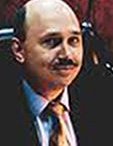 |
|
The present article is devoted to the issue of unity of laws, patterns and mechanisms of evolution at all its stages and levels of Big History and megaevolution. Despite the enormous differences between cosmic, planetological, chemical, biological, and social evolutions, there are many similarities. Unfortunately, quite a few works are devoted to their identification. In the present article we will consider a number of such important similarities, which, in our opinion, clearly demonstrate the systemic-structural and functional-evolutionary unity of the world at its different levels and in different areas. The understanding of these similarities deepens our perception about all stages of Big History and its regularities, and leads us away from the false idea that social evolution in all aspects is different from the evolution of previous levels.
Leonid E. Grinin is Director of Uchitel Publishing, Volgograd, Russia. Beginning as a teacher in rural schools, he founded his publishing firm to develop educational materials in the 1980s. He then completed a Ph.D. at Moscow State University and expanded Uchitel to serve a global market in Russian and English. A sociologist, philosopher of history, and economist, his work focuses on identifying regularities of macroevolution. Among his thirty monographs are From Confucius to Comte: The Formation of the Theory, Methodology and Philosophy of History (2012, in Russian); Macrohistory and Globalization (2012); and The Big History of the Universe’s Development: Cosmic Evolution (2013, in Russian). Leonid co-authored Great Divergence and Great Convergence: A Global Perspective (2015) and co-edits the international journals, Social Evolution and History and Journal of Globalization Studies. A founding member and Deputy Director of the Eurasian Center for Megahistory & System Forecasting, access to his portal, Social Studies. |
| Lorenzo Miguel N. Guarin |
Reflections on Colonization and Globalization as Neutralizing Factors of Filipino Culture |
| |
Nickname: Renzo
The centuries of colonization in the Philippines have resulted to different cultures being incorporated into the Filipinos' own culture. With that, the paper aims to explore different experiences and observations as reflections of the changes in the Filipino culture with colonization and globalization as neutralizing factors; as well as discovering its implications on the future, the world, and Big History.
JM is a 2nd Year BS Civil Engineering student from Holy Angel University, and an advocate of cultural history. A member of various school organizations, JM takes pride in his personality as a jack of all trades. Multifaceted in his studies, he enjoys casual writing and reading as his hobbies, and has a penchant for academic research. His foray into the fields of biomedicine, humanities, and renewable energy gives him a wide array of information and knowledge to utilize in further studies. At heart, JM is a person with insatiable curiosity; one who does not back down from the unknown. Lorenzo is a 2nd Year BS Hospitality Management student from Holy Angel University. He majors in Culinary Arts and Kitchen Operations, pursuing his passion for cooking, food preparation as well as customer service. Lorenzo is a curious person by nature with interests in reading psychology and philosophy, writing poetry, and dancing. Rooted in his fascination for new knowledge, skills, and experiences, he took interest in the culinary world as a way to learn and experiment with flavors to create beautiful dishes. Similarly, he saw Big History as a way to expand his capabilities in understanding the little details, their connections, and how they complete the big picture. |
| Lowell Gustafson |
Emergent Complexity: A Rationale for the University |
| |
Emergent complexity is a key theme of big history. Disciplines from the natural sciences, social sciences, and humanities contribute evidence towards a substantiated account of development from quarks, protons and neutrons, atoms with 1 or 2 protons and electrons, stars and galaxies, atoms with more than 2 protons, chemicals, second and third generation stars, terrestrial planets like Earth, the origin and increasing complexity of life forms, one of these forms being hominins and then humans, and increasingly complex relationships among humans in kinship groups, villages, cities, nations and empires, and global systems. Humans, each with a hundred billion neurons and maybe a trillion synapses, now number some 8 billion, with more humans connected digitally to each other than ever before. This emergent complexity has never been steady and its future remains uncertain. What it does provide is an intellectual rationale – a universe of knowledge – to which all disciplines of the university contribute. Each part of this account has been made possible only through disciplinary focus. The account as a whole has been possible only through the synthesis of each of these parts all within a university.
Lowell Gustafson is Professor of Political Science at Villanova University in Pennsylvania (USA). His course on ‘Our Social Nature’ uses a Big History approach, and he has also taught it at the Graterford maximum security prison near Villanova. His research has included how science explains the origin and development of polity and how emergent complexity provides anintellectual rationale for universities. He has served as secretary, vice-president, and president of the International Big History Association (IBHA), and as editor of Origins: The Bulletin of the IBHA, and the Journal of Big History. |
| Tony Harper |
The Interaction Between Complexity And Entropy Over Human History As Exemplified By Changes In Urbanization |
| |
This presentation focuses on the interaction of complexity and entropy, and does so from the perspective of changes in urban area size and urban area distribution. Given a specific measure of complexity, that of hierarchical complexity based on the number of hierarchical levels of a specific hierarchy, it will be shown that the complexity of urban area distributions over historic time, i.e. from 5000 BCE to 2000 CE, increases in a more or less linear way, while the entropy of the same urban area systems and over the time period, 3000 BCE to 1900 CE, fluctuates significantly about a constant mean. However, over the 20th Century, while complexity continues to increase about a linear regression mean, entropy enters what Russian researchers call the (or a) blow-up phase. Close(r) inspection of these two distributions shows that in many instances over specific periods of time the regression slopes of each are opposite. However, during unique periods of time, these slopes share the same sign. Both phenomena will be investigated. Further, it will be shown that the complexity of urban area systems exists within narrow constraints. It will also be shown that this is especially the case for the last 2000 years of human history, specifically during periods of complexity increase. It is hoped that the findings presented in this presentation shed at least some light on the massively wicked problems that the world-system now faces.
Antony Harper, a researcher in the general area of applied mathematics to human his-torical processes, also understood as quantitative history and more appropriately, using Peter Turchin's term, as cliodynamics. He is currently associated with both New Trier College and Benedictine University. His primary research interests are modelling the pattern of urbanization over recorded history, i.e., from approximately 3000 BCE to the present. More currently these interests include understanding the consequences of this urbanization pattern, applying the model of punctuated equilibrium, originally propounded by Eldridge and Gould, to the pattern of urbanization, understanding why complex systems in general should exhibit the PE pattern of growth, and within the constraints of punctuated equilibrium beginning to understand the context and mechanisms that bring about punctuated change, i.e., quite frankly, understanding what causes historic tipping points. |
| John Hasse |
The Nexus of Storytelling and Collective Learning: A symbiotic spark for human emergence |
| |
 |
|
This essay explores the implications of storytelling as an essential as a complimentary concept to collective learning for capturing the essence and meaning of human emergence in Big History Threshold 6. The paper makes the case that storytelling provides the mechanism through which collective learning occurs explaining how cultural knowledge diffuses through time and space, what drives human belief systems, what compels social actions as well as explaining the means through which humans technologically progress. On the scale of universal evolution, humans are the only known species that can tell the story the universe thanks to our brains evolved capacity to conceptualize, communicate and comprehend explanatory narrative. The paper invites the Big History community to consider the roll of storytelling as a uniquely transdisciplinary nexus that can complement collective learning, pull together many big history threads and help tell Big History as a common human origin story for the Anthropocene.
John Hasse, Ph.D. AICP is a professor of geography and Director of the Geospatial Research Lab in the Department of Geography, Planning & Sustainability at Rowan University where he teaches various courses in geography, GIS and planning. Hasse's research interest focuses on land use geography and the interface of land use, environmental planning and spatial analysis. Hasse has taught courses in geography, planning and GIS where he integrates the big picture perspectives of geography and Big History with the applied tools of planning for designing a more resilient future land system. Professor Hasse integrates these same interests in his research where he has been conducting an on-going multi-decade analysis of urbanization and open space loss in New Jersey and studies the environmental impacts of future development buildout. Hasse has established the NJ MAP project, an award-winning online interactive atlas of New Jersey's environmental data. For the past decade Hasse has been teaching a course that tells the story of planet earth that integrates the time dimensions of Big History with the spatial dimensions of geography. Central to this work is the perspective of humans as the storytelling species. |
| Gregg Henriques and Tyler Volk |
A framework toward a Big History 2.0 |
| |
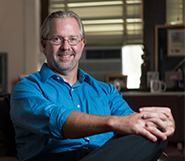 |
|
We offer here a joint overview of our paper in-press for the Journal of Big History (special issue on periodization; editor LePoire). The abstract of this paper is here. We hope you will join in and contribute! Abstract: We propose a “Big History 2.0” framework based on a time-by-complexity relationship that the two authors converge on, a synthesis from their prior independent work. In particular, the framework distinguishes a line of levels of combogenesis from quarks to culture, in contrast to patterns of emergence involving larger aggregates or groups. The framework identifies major transitions to novelty marked by innovations in general evolutionary dynamics (PVSR: propagation, variation, and selective retention), which have occurred multiple times following the Big Bang. As in Henriques’ Tree of Knowledge System, we take the Mind-Animal plane of dynamics as one of these major transitions because of the innovative PVSR-dynamics in the mindedness of animals. We note the need to simultaneously attend to patterns and processes of formation, and we describe avenues of further consideration that follow from this framework. This position paper has been improved and slightly expanded from the version originally presented to the Big History Research Group for general discussion on November 20, 2022.
Dr. Gregg Henriques is Professor of Graduate Psychology at James Madison University in the Combined Doctoral Program in Clinical and School Psychology. He received his Ph.D. in Clinical Psychology from the University of Vermont and did his post-doctoral training at the University of Pennsylvania. He is a theoretical psychologist and has developed the “Unified Theory of Knowledge,” which is a consilient scientific humanistic worldview to unify psychology. He is the author of A New Unified Theory of Psychology (Springer, 2011), and A New Synthesis for Solving the Problem of Psychology: Addressing the Enlightenment Gap (Palgrave McMillian, November 2022). His scholarly work has been published in the field’s best journals, and he has developed a popular blog on Psychology Today, Theory of Knowledge, which has received over nine million views. He is a fellow of the American Psychological Association, the 2022 President of the Society for the Exploration of Psychotherapy Integration, and founded the Unified Theory of Knowledge academic society, which hosted the 2023 UTOK Conference, Consilience: Unifying Knowledge and Orienting Toward a Wisdom Commons.
|
| Nick Hoggard |
Chaos Theory and Complexity Thresholds in Evolution - from the Big Bang to the Technological Singularity |
| |
The evolution of intelligent life on Earth has followed a pattern that is well-known in Non-linear Dynamics (aka Chaos Theory). Evolutionary processes (that is, reproduction with variation and heredity) arise at regular intervals. Each process has a faster means of adaptation and a new method of transmitting information about to the next generation. Each interval is shorter than the previous by a factor of 4.66920…. In Chaos Theory, the pattern of shrinking intervals (found in many natural phenomena, the simplest of which is a dripping water tap) is called a Period-doubling Cascade, and the number is known as the Feigenbaum constant delta.
This is an information-centred theory of evolution that unites biological, cultural and technological evolution. The thresholds are shown to be: 1) Big Bang, 2) Life, 3) Multicellular Life, 4) Behavioural Flexibility, 5) Tool Use, 6) Tool-making, 7) Using Tools to Make Tools, 8) Composite Tools, 9) New Inventions, 10) New Livelihoods, 11) Writing, 12) Printing, 13) Computing.
Nick was awarded a Bachelor's degree in Electrical Sciences from the University of Cambridge in 1980, and has mostly worked as a software developer, as well doing some research in the use of artificial intelligence in industrial control systems.
|
| Kenji Ichikawa |
Layered Structure of Little Big History ― Case Study of Enoshima, Japan |
| |
Enoshima Island, located in Sagami Bay on the Pacific coast of Honshu, Japan, is a small land-locked island about 400 meters from land, 4 kilometers in circumference, 0.38 square kilometers in area, 60.4 meters above sea level, and with a population of 350 people. Enoshima is one of the three major Benzaiten shrines in Japan and has attracted people to the island as a sacred place of Benzaiten worship. In this presentation, as a case study of Little Big History, I will explore the question of why people have been attracted to Enoshima, drawing on a variety of academic disciplines. As a result, the layered structure of Little Big History can be seen on Enoshima. By clarifying how the layers have accumulated over time, I will propose a broader view of history that could not be captured by a single discipline.
Kenji Ichikawa市川賢司 is a teacher at Aletheia Shonan High School in Chigasaki, Kanagawa, Japan. He teaches world history and began the first high-school Big History class in Japan in 2016. In 2019, he gave a report about his teaching of Big History and the liberal arts at the first international Big History symposium held in Japan, at J.F. Oberlin University in Tokyo. In 2022, he presented titled “A Little Big History of Silicon” at the first global big history webinar in Japan. He may be contacted at fumimaya001@gmail.com.
|
| Hirofumi Katayama |
Accelerationism versus Deep Time: Chronopolitics in the Anthropocene |
| |
Abstract: Acceleration is the most characteristic phenomenon of late modernity. With regard to this phenomenon, there is a trend that sees it as a new turning point in human history from a transhumanist point of view, such as Nick Land's accelerationism and Ray Kurzweil's singularity. On the other hand, there is a trend, such as Hartmut Rosa, David Harvey, and Paul Virilio, to take this negatively as a human crisis caused by modernism. Another view, as Julian Huxley once said, sees acceleration as a universal law of cosmic evolution. The battle over the future of modernism in the Anthropocene is, above all, a battle over time—chronopolitics. In this presentation, I will give an overview of the current state of chronopolitics and discuss how the cosmic perspective and deep time thinking of Big History should enter this battle. What the acceleration phenomenon and accelerationism, which takes it positively, brings about is the deconstruction and destruction of humanism. In order to resist it, I believe that we need a new humanism based on a sense of deep time - cosmic humanism. Cosmic humanism aims at peaceful and symbiotic reorganization of human relationships and human-nature relationships, and the establishment of fundamental human independence to control acceleration phenomena. I would like to present a vision of cosmic humanism as an humanism of the Anthropocene based on the Big History perspective.
Profile: Hirofumi Katayama is professor of College of Arts & Sciences, J. F. Oberlin University, Tokyo, Japan. His specialty is environmental economics, and he has mainly studied commons theory. He is a pioneer in Big History education and study in Japan. He stared the first Big History course (in Japanese) and established the first Big History program in Japan. The main theme of his research related on Big History is to criticize anthropocentrism of mainstream Big History and to build an alternative vision, namely, Buddhist Big History. |
| Andrey V. Korotayev |
Patterns of complexity growth in the Big History. A preliminary quantitative analysis |
| |
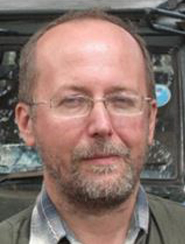 |
|
The paper presents preliminary results of a quantitative analysis of two patterns of complexity growth in the Big History – decelerating universal (cosmic) evolutionary development evidenced in the Universe for a few billions of years after the Big Bang (around 13.8 billion BP) and accelerating global (biosocial) evolutionary development observed for about 4 billion years on the planet Earth since the emergence of life on it. It is shown that the first pattern can be described with an astonishing accuracy (R^2 = 0.999996) by the following equation: y = C1/(t-t1*), where y is the rate of the universal complexity growth (measured as a number of phase transitions [accompanied by the growth of complexity] per a unit of time), C1 is a constant, and t-t1* is the time since the Big Bang Singularity (t1*~13.8 billion years BP). In the meantime, it was earlier shown that the second pattern could be described with an almost as high accuracy (R^2 = 0.9989 to 0.9991) by the following equation: y = C2/(t2*-t), where y is the rate of accelerating global (biosocial) evolutionary development, C2 is another constant, and t2*-t is the time till the 21st century Singularity (t2*, estimated to be around 2027, or 2029 CE). The implications of the similarity of both patterns are discussed.
Andrey V. Korotayev is Senior Research Professor at Eurasian Center for Big History & System Forecasting at Institute of Oriental Studies, Russian Academy of Sciences, as well as at International Laboratory of Demography and Human Capital, Russian Presidential Academy of National Economy and Public Administration. He is also Director of the Center for Stability and Risk Analysis at HSE University and Professor at Faculty for Global Processes, Moscow State University, Russia. Beginning as an historian of Arabia, he made focused studies, such as seen in ‘Two Social Ecological Crises and Genesis of Tribal Organization in the Yemeni North-East’ (1996). Andrey researches topics in quantitative cross-cultural anthropology and seeks to understand biological and social macroevolution, as in ‘A Compact Macromodel of World System Evolution’ (2005) and ‘Mathematical Modeling of Biological and Social Phases of Big History’ (2014). He is a founding member of the Eurasian Center for Megahistory & System Forecasting and founder of Evolution, an almanac dedicated to the study of Universal Evolution, and thus is closely linked with Big History. Most recently, he has produced, with David LePoire, a collective monograph, The 21st Century Singularity and Global Futures: A Big History Perspective (2020). He serves as a board member of the International Big History Association. |
| Alexis Lau |
Science, Environment and Society – STEAM Education and Big History in Hong Kong |
| |
Prof. Alexis Lau is currently the Head and Chair Professor of the Division of Environment and Sustainability at The Hong Kong University of Science and Technology (HKUST). He also has joint appointment as Chair Professor at the Department of Civil and Environmental Engineering and Director of the Institute for the Environment at HKUST. Despite Prof. Lau’s research focus on Air Quality, Weather and Climate, he is enthusiastic in pushing Sustainability Education in higher education and he is eager to explore a better interdisciplinary framework in delivering so. Starting from 2015, with the recommendation from his colleague – Prof. Robert Gibson, the Big History framework has been being employed in a Climate Change undergraduate course. Since then, a Big History teaching team was formed and participated different IBHA conferences to share local teaching experience. Alexis can be reached at alau@ust.com. |
| Gustavo Lau |
Some Applications of a Big History Concept |
| |
Using analogies we generalize Tyler Volk's combogenesis concept. A pedagogical application is a narrative that allows to include some milestones of mathematics and physics in Big History courses. Applying the concept to books and book collections we suggest a philanthropic idea. This simple and potentially powerful application mixes low and high technology: using online bookstores, we propose the reproduction of personal book and video collections in public libraries. We give an example, at Simón Bolívar University in Venezuela, where this has already happened. We finish proposing to use this idea to create a Big History book and video collection that could be donated to educational institutions around the world where a Big History course could be taught remotely.
Gustavo Lau was born in Lima, Peru in 1964 and immigrated to Caracas, Venezuela in 1976. Since 1994 he has worked in finance in London, UK where he is currently a principal of Episteme Capital. He holds a PhD in Computer Science (2019) from the Polytechnic University of Catalonia, Spain, an M.S. degree in Computer Science (1988) and two B.S. in Mathematics (1988) and Computer Science (1986) from the Simón Bolívar University, Venezuela. In his spare time, Mr Lau is a Mathematics Masterclasses lecturer for the Royal Institution of Great Britain and a Guest Professor at Simón Bolívar University, Venezuela. In January 2022 he founded the Big History Club of Simón Bolívar University. Since then he has been teaching informally the Big History course of the OER Project in that club. |
| |
|
|
| David LePoire |
Energy Flow & Complexity in Cosmic Phase, |
| |
Eric Chaisson explored the energy flows through both cosmic structures and life systems to identify a trend from lower to higher energy density over the course of this evolution. However, this trend required that the galactic structure be less complex than stellar structures, just based on estimated energy flow. However, there have been recent findings in cosmic evolution of the cosmic web and galactic formation that suggest large energy flows did exist which help form these dissipative structures. For example, adding the cosmic web’s energy flow do to gravitational collapse, the galactic phase of active nuclei (AGN or quasars which are much more prevalent in younger systems), the stellar energy flow as Chaisson calculated, and the energy flow through the whole Earth’s mass due to its cooling from gravitational collapse and radioactive decay show that the FERD might actually decrease over this cosmic phase as the energy gradients dissipated and cooling led to improved conditions for life. Later in evolution of life on earth, Chaisson's calculations would be appropriate, starting with the FERD in the evolving atmosphere/ ocean of the earth supplied by sunlight at higher frequencies than are emitted (the sun’s surface has a higher temperature than the Earth’s surface).
David LePoire researches, develops and applies science principles in environmental issues, Big History evolutionary trends, and particle scattering. He has a BS in physics from CalTech, a Ph.D. in computer science from DePaul University, and over thirty years experience at the Argonne National Laboratory in the development of scientific analyses, software, training, and modelling. His research includes Big History synergistic trends among energy, environment, organization, and information. |
| Paul Narguizian |
Big History: Integrating Complexity in Biology Education |
| |
Within recent history, both science research and science education have been largely reductionist and mechanistic in perspective. While the reductionist approach has resulted in a significant increase in our knowledge of the natural world and in great technological advances, it is not sufficient for addressing global world challenges, such as climate change, sustainability, habitat destruction, and social justice (Orgill, York, and MacKellar, 2019). Biology educators require a new paradigm in order to integrate the reductionist approaches that are commonly used in biology research and education, with a complementary holistic approach. Complexity, emergence, and systems thinking is such an approach. The goal is to understand how components of the global ecosystem interact with each other in order to gain knowledge of the complexity of a system and to develop fundamental principles from it. This presentation discusses the historical development, describes the key characteristics, and presents some skills and competencies associated with complexity, emergence, and systems thinking. The primary goal is to provide biology educators with enough basic information about the ‘four features of complexity’, utilized in Big History, so that they can consider why and how such an approach might be applied in the education of both biologists and a scientifically literate citizenry.
Paul Narguizian is Professor of Biological Science and Science Education at California State University, Los Angeles. His Big History Science Education research lab develops curricula for non-science and science majors with examples from the Big History and Journey of the Universe projects, popular films, science fiction, the nature and history of science, and data from scientific research. His students explore key research questions such as: What are the major milestones in biological discovery that expand our knowledge of life? What role should the grand narrative of the formation of the universe play in biology education? How can museum objects and natural history collections help us better understand Big History? Paul presented on the future of biology education at the 2019 IBHA symposium in Milan and published ‘Considering Grand Challenges in Undergraduate General Biology Education in the Journal of Big History (2020). |
| Bernardo Nery |
The question of property and trade: cognition, behavior and human evolution |
| |
Property and trade are centerpieces in economic thought. However, mainstream economics takes this concept for granted, being formally out of the debate since the development of classical political economy. Using Big History as a transdisciplinary starting point, we present a hypothesis about how a general idea of property and trade may have been produced by evolutionary cognitive mechanisms in Homo sapiens, developed since the last common ancestor with common chimpanzees (Pan troglodytes). We conclude that a general idea of ownership may have arisen from what is called, in early ethology, "possession behavior," while the idea of trade (and a set of related behaviors) depends on transdominial mental mechanisms, serving the purpose of maintaining and promoting social cohesion at intragroup and intergroup levels.
Bernardo Nery holds a Bachelor's degree in Economics from the Federal University of Rio de Janeiro. He is currently pursuing a Master's degree in the Comparative History graduate program at the Federal University of Rio de Janeiro, where he is working on his thesis "A Study on the Origin of Social Hierarchies: A Cognitive Comparative History Perspective." His research interests include comparative history, cognitive history, social hierarchies, and economic history. |
| Nick Nielsen |
Big History for ETI: Recognizing Parochial and Non-Parochial Forms of Complexity |
| |
Traditional historians, when they paused their work in history to reflect on historiography, often discussed objectivity in history. Is it possible? Is it desirable? In what would historical objectivity consist? The problem of historical objectivity has dogged historians since the advent of the discipline. Big history, as a form of scientific history, can refer to standards of scientific objectivity as a model, but, in focusing on emergent complexity as the spine of the cosmological historical narrative and the basis of periodization, novel problems arise. How much of known emergent complexity is parochial and endemic to Earth? And if known emergent complexity is endemic to Earth, what other forms of emergent complexity are to be found in the universe? Would an ETI recognize big history as being its history also? A big history adequate to the history of the cosmos entire, and not merely to the history of Earth alone, would comprise all forms of emergent complexity, and would place each in the context of the other. For a non-parochial big history, we must expand the scope of our historical inquiry.
J.N. ‘Nick’ Nielsen is an independent scholar from Oregon who studies emergent complexity, especially as it relates to civilization and its future in the context of big history. He has spoken about the future of civilization at several conferences (100YSS, Icarus Interstellar, SSoCIA), including the 2014 IBHA conference in San Rafael, the July 2019 IBHA symposium in Milan (where he spoke on ‘Peer Complexity during the Stelliferous Era ’), and the 2020 webinar, Being A Good Ancestor (speaking on ‘Scientific Approaches to Civilization’). |
| Rachel Oser |
Science, Environment and Society – STEAM Education and Big History in Hong Kong |
| |
Dr. Rachel Oser is from New York and has been in Hong Kong since 2010. She began her career teaching science in urban public schools in the US, and taught MYP Science at the Academy since 2012. Dr. Oser completed her master’s degree in Life Sciences at the University of Maryland, and her Doctor of Philosophy degree in Science Education from Curtin University in Perth, Australia. Her dissertation investigated the effects of virtual laboratories. She also spent a few summers at the RNA Molecular Biology Laboratory at the Rockefeller University. Her goals upon joining the Shuyuan team are to manage educational research at ISF, integrate sustainability resources and other Shuyuan projects into classrooms, and help build the curriculum for Shuyuan’s science courses. Dr. Oser and her husband have four children and enjoy the stimulation that Hong Kong has to offer. Rachel can be reached at roser@isf.edu.hk. |
| Alexander Panov |
Big History in the Galaxy: about risks of contacts with alien civilizations |
| |
The Big History, generally speaking, does not finish with the emergence of intelligence on single planets. A new quality of evolution can arise when different planetary civilizations come into contact with each other to begin a new joint evolution. However, for this, contacts between civilizations must be established, despite the fact that contacts between civilizations are fraught with risks. The report discusses the risks of contact with alien civilizations specifically for our human civilization. It is shown that some of the commonly assumed risks are in fact completely fictitious, while other risks are underestimated or not taken into account at all. The author's opinion is that, although the risks of contact with aliens are not completely eliminated, the possible bonuses from such contacts greatly outweigh the risks.
Alexander D. Panov graduated from Moscow State University, Department of Physics. At present, he is a leading researcher at the Moscow State University Skobeltsyn Institute of Nuclear Physics (MSU SINP), and is doctor of sciences (Physics and Mathematics). His major works are devoted to nuclear physics, surface physics, quantum theory of measurement, cosmic rays physics, and problems of universal evolution / Big History. He is the author of about 200 articles in the Russian and international academic press, as well as the author of the monograph Universal Evolution and Problems of the Search for Extraterrestrial Intelligence (SETI). |
| Beatriz Pimentel |
Chimpanzee behaviour and Clausewitzian war: differences and similarities in the realms of politics and conflict |
| |
This communication explores the connections between chimpanzee intragroup social behaviour, intergroup aggression, and the classic approach to war theory developed by Clausewitz. Drawing on research from primatology, anthropology, and military studies, we argue that chimpanzee social behaviour, as well as their antisocial attitudes towards out-group primates, provide valuable insights into this 19th century approach to war. As chimpanzees live in complex societies with hierarchies, alliances, and coalitions, they offer an interesting framework to explore the implications of politics and conflict and can help inform our understanding of war and military strategy. We draw on the work of Clausewitz to explore the similarities and differences between chimpanzee behaviour and the classic approach to war theory. Specifically, we focus on the role of politics and aggression in determining the outcomes of conflicts from both in-group and out-group perspectives.
Beatriz Pimentel holds a Bachelor's degree in Defense and Strategic International Management from UFRJ. Currently, she is conducting research on the relationship between war and human evolution. Her research interests encompass the fields of defense, international relations, and evolutionary anthropology, where she explores their intersections and implications. |
| Godwin C. Pring |
Finite Resources, Infinite Greed: Deconstructing the Infrastructural Progress in the Philippines |
| |
Nickname: Dwin
Godwin, currently a 2nd-year BS Accountancy student at Holy Angel University, wholeheartedly believes in the transformative power of deconstruction as a force for the construction of valuable change. As a writer for the university's official student publication, he confronts the status quo by unyieldingly voicing and writing honest criticisms of problematic policies and structures that afflict his community. Even more in today's world, plagued by the depletion of natural resources and the relentless assault on indigenous institutions due to rapid modernization and urbanization, Godwin believes in the idea of championing the necessity of critical analysis. For by shedding light on the flaws in state policies and projects, he believes that we can forge a sustainable future that answers the call of the times. His unwavering conviction drives him to enlighten others and work towards a better world for current and future generations.
|
| Ekaterina Sashienko |
Evolutionary prospects for the development of AI |
| |
This report examines some approaches to the understanding of the future interaction between human and technology. The evolutionary prospects for the development of artificial intelligence are assessed. In addition, we analyse how the AI can give rise to the new challengies to humanity and also it can be a way to solve a part of the current global problems.
PhD, lecturer at the State University «Dubna», Russia. |
| Stephen Satkiewicz |
Social Complexity and War from a Big History Perspective |
| |
The connections between the emergence of social complexity and war are relevant from a Big History perspective as having a reflexive type of relationship. That is, they both influence one another as both cause and effect depending on the context. This connection applies from the origins of organized violence in the Neolithic period to the present day. This was especially in the case of the emergence of early states, empires, and socio-political systems of varying types. Historical sociologist Charles Tilly (1929-2008) famously summarized this relationship as “War made the state and the state made war.” Big History digs deeper into this question through the examination of the thresholds of emergent social complexity and the processes of social macroevolution. War and organized violence do not occur in a vacuum, but its character is very much a reflection of the complex context in which it occurs.
Independent scholar whose comprehensive research areas included are civilizational analysis, social complexity, Big history, historical sociology, military history, war studies, international relations, geopolitics, as well as Russian and East European history. |
| John Matthew C. Sausora |
Reflections on Colonization and Globalization as Neutralizing Factors of Filipino Culture |
| |
 |
|
JM is a 2nd Year BS Civil Engineering student from Holy Angel University, and an advocate of cultural history. A member of various school organizations, JM takes pride in his personality as a jack of all trades. Multifaceted in his studies, he enjoys casual writing and reading as his hobbies, and has a penchant for academic research. His foray into the fields of biomedicine, humanities, and renewable energy gives him a wide array of information and knowledge to utilize in further studies. At heart, JM is a person with insatiable curiosity; one who does not back down from the unknown.
Nickname: JM
JM is a 2nd Year BS Civil Engineering student from Holy Angel University, and an advocate of cultural history. A member of various school organizations, JM takes pride in his personality as a jack of all trades. Multifaceted in his studies, he enjoys casual writing and reading as his hobbies, and has a penchant for academic research. His foray into the fields of biomedicine, humanities, and renewable energy gives him a wide array of information and knowledge to utilize in further studies. At heart, JM is a person with insatiable curiosity; one who does not back down from the unknown.
|
| Juan Gabriel C. Simbulan |
Finite Resources, Infinite Greed: Deconstructing the Infrastructural Progress in the Philippines |
| |
Nickname: Yuan
Yuan, a 2nd-year BA Communication student at Holy Angel University, is a committed purveyor of truth as he sets out his advocacy as a student journalist constantly seeking for accountability in this society filled with inequality. Growing up as an outspoken child, Yuan found power through voicing out as a consistent student journalist since elementary. Furthermore, as he opened his eyes to the cruel truths of the society that he personally faced, saw, and observed from those around him, it sparked a fighting spirit to always become a device to amplify the voices of the masses. As a critic of those in power, he outwardly condemns policies being made that are only good for those who have power. Moreover, he believes that policies should be made for the masses, those who are flightless and marginalized. This is his constant advocacy of fighting for the people and his community and speaking out about injustices even with a shaky voice. |
| Walter Silva |
The Evolutionary Roots of Warfare and Its Ecological Conditions |
| |
My aim in this presentation is to approach warfare from the long-term perspective held by Evolutionary Psychology. The theory of warfare developed by Tooby and Cosmides (1988, 2010) suggests that warfare requires elaborate cooperation among members of one group to coordinate their aggressive actions against another group. It also suggests that sexual access to women would have been the key reproductive resource that selected for men to evolve specific psychological mechanisms for warfare. This long-scale understanding will allow a better understanding of the causes of war, so that we can reflect on contemporary wars through the understanding that the human phenomenon of violence is sensitive to ecological conditions. Cultural, political, and economic institutions therefore need to take this long-term evolutionary perspective into account in order to create social conditions that promote more peaceful environments.
Walter Silva holds a Ph.D. in Ethics and Political Philosophy from PUCRS, where he was awarded a fellowship to conduct research at École Normale Supérieure in Paris. Currently, he is an Associate Professor and Vice-Head of the Philosophy Department at the Federal Rural University of Rio de Janeiro (UFRRJ). Silva's research interests span a wide range of topics including Ethics, Political Philosophy, Evolutionary Theory, morality and politics, Philosophy of Biology, democracy, political liberalism, individualism, theories of justice, and freedom of speech./p |
| Ken Solis |
Cosmic Evolution – A Critical Appraisal of Energy Rate Density |
| |
Cosmic Evolution by the astrophysicist, Eric Chaisson, is arguably one of the seminal big history text books. Amongst other topics, it nicely explains much of the salient thermodynamics relevant to the ontology and progression of complex systems, a.k.a. “complexities.” Cosmic Evolution also proposes that the “free energy rate density,” (FERD), which is the effective energy that flows through a system, is a reliable and hypothetically determinable metric of a system’s degree of complexity relative to others – such a metric has otherwise eluded the science. Unfortunately, however, the arguments used to support FERD suffer from at least 3 errors that undermine its status as an unrivaled complexity metric. Two of these errors also frequently plague the vast amount of research done in another scientific discipline concerned with complexities – medicine. Although the errors do not negate FERD’s utility, it remains to be proven that it is the “gold standard” of complexity metrics.
Ken Solis is a retired internist and ER physician with a master’s degree in bioethics. His long trips to and from work over the years also gave him many hours to listen to lectures on other fields in the sciences, philosophy, and history. By coincidence, he was teaching “A Brief History of the Universe” to adults before he encountered David Christian’s big bistory lectures for “The Great Courses.” His special interest in big history is what thermodynamics, information theory, and complexity science might reveal about how systems have, depending on the circumstance, progressed, regressed, and diversified over time. He has also applied these disciplines to the formulation of an information-centric ethical theory that was published in JBH. |
| Fred Spier |
How did humanity get itself into its current ecological predicament? |
| |
How did humanity get itself into its current ecological predicament?
The famous dictum by the English philosopher of science, Sir Francis Bacon (1561-1526 CE),
that “nature is only to be commanded by obeying her” is also very much applicable to the
pressing issue of how to secure humanity's best possible future within the Earth’s biosphere. To
do so effectively, we need to understand how the biosphere works as well as how it has evolved
over the course of time, leading to humanity finding itself in its current ecological predicament.
But how well do we understand all of that, theoretically speaking, seen from the viewpoint of big
history?
In my presentation, the major results will be summarized of pursuing this fundamental issue for
more than forty years. As part of that, important themes will be presented that are discussed in
my recent book How the Biosphere Works: Fresh Views Discovered While Growing Peppers
(2022, CRC Press), in which I seek to address that general issue in novel ways.
Fred Spier is senior lecturer in big history emeritus at the University of Amsterdam, NL. He
holds a M.Sc. in chemistry (with distinction) as well as a M.A. and Ph.D. in cultural
anthropology and social history (both cum laude, the highest distinction in the Netherlands). He
has taught and researched big history for almost thirty years, while lecturing about it around the
world. He authored the highly-acclaimed books Religious Regimes in Peru (1994), for which
Spier was awarded a Praemium Erasmianum Study Prize 1993; The Structure of Big History:
From the Big Bang until Today (1996); Big History and the Future of Humanity (2010, 2015);
and How the Biosphere Works: Fresh Views Discovered While Growing Peppers (2022).
Between 2011 and 2014, Spier was the IBHA’s founding vice president (and its president de
facto), and between 2014 and 2016 its second president. More info on: www.fredspier.com |
| Spencer Striker |
Empires & Interconnections for iPad | Challenging Students with Wicked Problems in History |
| |
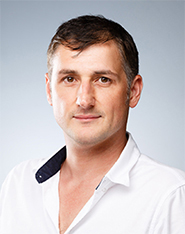 |
|
This talk will present Empires and Interconnections, the newest edition in the award-winning History Adventures digital learning series, now available for iPad, fully reimagined using the powerful Unity3D game engine. This fully interactive, animated digital learning product represents a fresh approach to history education, designed for today’s digital generation. Empires and Interconnections features many hours of multimodal content, combining mobile entertainment with the power of story—bringing the pages of history to life.
: Spencer Striker, PhD is Associate Professor of Digital Media Design at Northwestern University in Qatar. Striker’s digital work centers on interaction design, mobile media, digital media and learning, video games, and entrepreneurship. He is the creator of History Adventures: World of Characters—a fully interactive digital learning series that presents a fresh approach to history education, combining mobile entertainment technology with the power of narrative design. He is also the creator of Global Pandemics, a cross-platform digital learning series designed to enhance student understanding of the role of pandemics in world history. Striker's body of work includes over 15 years of award-winning digital media design that includes apps, games, motion comics, VR, podcasts, and original web series; working at the intersection of industry and academia. Striker’s awards include an Anthem Awards Silver Medal; 2 Horizon Interactive Gold Awards; 2 nominations for Best Educational App at the Reimagine Education Awards and Winner of Best EdTech Innovation in the Middle East; and 4 Webby Awards. His projects have received competitive funding from the National Endowment for the Humanities; the Bill and Melinda Gates Foundation; Northwestern’s Innovation & New Ventures Office; the HBKU Innovation Center; the Oxford Research Institute; and the Qatar National Research Fund. In addition to his academic experience, Striker has been active in the digital media industry, having served as founding creative director of the Silicon Valley learning games startup, Galxyz, Inc, (which raised $4m in funding from Relay Ventures, Andreessen Horowitz, and Laurene Powell Jobs’ Emerson Collective). |
| Amber Stuver |
Probing to the Depths of the Universe with Gravitational Waves |
| |
Amber L. Stuver is an assistant professor of physics at Villanova University, and has been a member of the LIGO Scientific Collaboration (LSC) since 1999. Before joining Villanova in 2017, she spent a decade working at the LIGO Livingston Observatory: first as a postdoctoral scholar, then as a staff scientist on a dual appointment teaching at the Louisiana State University. She earned her PhD and MEd in physics from the Pennsylvania State University and her B.S in physics from Frostburg State University, MD.
Dr. Stuver specializes in computational aspects of gravitational-wave searches, with experience in data analysis design, gravitational wave simulation, and detector characterization investigations to minimize the impact of noise in the search for astrophysical signals with LIGO. She is also a fluent science communicator, having given tours to thousands of visitors to the LIGO Livingston Observatory, speaking at many local venues, and writing content for outlets like TED-Ed. |
| Jenna Thompson |
Enlarging Our Map of Reality: Exploring the Threshold Between Thoughts and Words |
| |
Jenna is a writer, editor, and educator with a background in fiction, journalism, poetry, and creative nonfiction. Her education includes an MFA in Writing from Pacific University in Oregon. Her primary interest is the portable, nimble capacity of words to point to reality beyond themselves and to deepen our experience of being human. She teaches at Pacific University in Forest Grove, Oregon. |
| |
|
|
| Nobuo Tsujimura |
The “Big Twist”: For making big history multicultural and multinatural |
| |
In recent years, scientists and scholars have increasingly discussed how nonhumans and nonliving things including other species and AI can have consciousness and mind, agency and personality. Interestingly, such arguments are getting close to worldviews of indigenous peoples around the world in which animals, plants, and even stones can have anima, spirits, and agencies. In this sense, their mythic or animistic worldviews which were once discarded as “pre-modern” turn out to be “post-modern” today. Some anthropologists have already noticed and studied their progressiveness under the names of the “ontological turn”, “multinaturalism”, and "multispecies anthropology". Likewise, the late Kinhide Mushakoji (1929-2022) called for big historians to engage in such a "big twist" for making big history multicultural and for finding new diverse universality beyond Western-centric and unilinear view of progress. Yet, this "twist" is more than that because it also allows us to go beyond human-centrism by making us open to different perspectives of other species.
Nobuo Tsujimura is a big historian living in Tokyo and has played a role of a hub to activate big history home and abroad as president of the Asian Big History Association; board members of the International Big History Association in the US and the Institute for Global and Cosmic Peace in Yokohama; and adviser for the Oberlin Big History Movement based in J.F. Oberlin University in Tokyo. In 2019, he co-organized the first international big history symposium in Japan with Professor Hirofumi Katayama at Oberlin, where he is currently teaching three big history courses as adjunct lecturer. He may be contacted at palettehole@gmail.com.
|
| Daniel Vainfas |
Chimpanzee behaviour and Clausewitzian war; Class, Commerce and Climate; |
| |
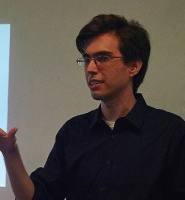 |
|
Chimpanzee behaviour and Clausewitzian war: differences and similarities in the realms of politics and conflict
Beatriz Pimentel (beatriz00pimentel@gmail.com)
Daniel Vainfas (danielvainfas@gmail.com)
This communication explores the connections between chimpanzee intragroup social behaviour, intergroup aggression, and the classic approach to war theory developed by Clausewitz. Drawing on research from primatology, anthropology, and military studies, we argue that chimpanzee social behaviour, as well as their antisocial attitudes towards out-group primates, provide valuable insights into this 19th century approach to war. As chimpanzees live in complex societies with hierarchies, alliances, and coalitions, they offer an interesting framework to explore the implications of politics and conflict and can help inform our understanding of war and military strategy. We draw on the work of Clausewitz to explore the similarities and differences between chimpanzee behaviour and the classic approach to war theory. Specifically, we focus on the role of politics and aggression in determining the outcomes of conflicts from both in-group and out-group perspectives.
Class, Commerce and Climate: an investigation on a set of circumstances for the rise of capitalism in 15th century England
Daniel Vainfas
This communication explores some of the intricacies of the relationship between climate change in the 14th century, long-distance trade in the Baltic region, and the class structure in England, all three taken as explaining factors for the rise of capitalism. Drawing on historical documents, archaeological findings, and paleoclimatic data, we examine the effects of climate change on long-distance trade in the Baltic and how its impacts on the social structure of England, as well as how the changing landscape of the English coast in turn affected its export drive. In particular, the paper examines the effects of climate change on the growth of the English wool industry and England’s position in the international division of labour in 15th century Northern Europe We argue that the confluence of autonomous social dynamics and the climate change itself created a special set of circumstances in which capitalism coalesced.
Daniel Vainfas holds a Doctorate in Economics from the PPGE-UFRJ, with a thesis focused on the intersection between economics and long-term phenomena, with a particular emphasis on the impact of climate change on the transition from feudalism to capitalism. He also earned a Bachelor's degree in Economics and a Master's degree in International Political Economy from the Federal University of Rio de Janeiro.
|
| Rhod Railey T. De Vera |
The Manifestation of Greed in Consumer Electronics: A Filipino Big Historian's Analysis of Resource Scarcity |
| |
Nickname: Rai
Rai is a 1st year BS Computer Science student from Holy Angel University. He is currently a scholar of the SM Foundation. Rai is also a member of the University Student Council and is under the Research and Development Special Committee. He is also an advocate for student empowerment. |
| Tyler Volk (with Gregg Henriques) |
A framework toward a Big History 2.0 |
| |
We offer here a joint overview of our paper in-press for the Journal of Big History (special issue on periodization; editor LePoire). The abstract of this paper is here. We hope you will join in and contribute! Abstract: We propose a “Big History 2.0” framework based on a time-by-complexity relationship that the two authors converge on, a synthesis from their prior independent work. In particular, the framework distinguishes a line of levels of combogenesis from quarks to culture, in contrast to patterns of emergence involving larger aggregates or groups. The framework identifies major transitions to novelty marked by innovations in general evolutionary dynamics (PVSR: propagation, variation, and selective retention), which have occurred multiple times following the Big Bang. As in Henriques’ Tree of Knowledge System, we take the Mind-Animal plane of dynamics as one of these major transitions because of the innovative PVSR-dynamics in the mindedness of animals. We note the need to simultaneously attend to patterns and processes of formation, and we describe avenues of further consideration that follow from this framework. This position paper has been improved and slightly expanded from the version originally presented to the Big History Research Group for general discussion on November 20, 2022.
At the scale of 4 billion years, the scale of life on Earth, Tyler Volk, Professor of Biology and Environmental Studies, New York University, looks for new models and draws links across various disciplines. Author of Quarks to Culture: How We Came to Be (2017) and Metapatterns: Across, Space, Time, and Mind (1995), here Volk, a self-described “patternologist,” compares his tripartite system of dynamic realms with the working conceptual structures currently deployed in the field of big history. |
| Marc Widdowson |
The last stop on the cosmic journey: an estimated time of arrival |
| |
History is a moral, intellectual and physical journey whose destination is complete knowledge of the universe and final understanding of its two key mysteries, which Kenneth Boulding identified as the nature of consciousness and the origin of thermodynamic potential, i.e. how the universe came to be and how it knows itself. This paper offers some "back of the envelope" calculations concerning the complexity of such a pleromatic civilization and estimates the time it will take to get there given the changing rate of complexity growth. Its main contribution is to explore metrics of complexity that are sufficiently general to encompass this vast trajectory.
Independent researcher, primarily in government and defence, providing applied history insights in such areas as multinational coalitions, social mood and instability, financial networks, and effects of technology on society. |
| Aidan Wong |
Science, Environment and Society – STEAM Education and Big History in Hong Kong |
| |
Aidan Wong is a PhD Candidate in Environmental Science, Policy and Management at The Hong Kong University of Science Technology. His research focuses on interdisciplinary learning and education for sustainability. He is Teaching Assistant for the university’s general-education course on Big History, Sustainability and Climate Change, and since 2017, has been Instructor for the course on Big History and Sustainability for Gifted Secondary Students, in partnership with The Hong Kong Academy for Gifted Education. He has published a course handbook, Big History: A Scientific Origin Story (2019), in collaboration with the Hong Kong Scholars Program. Aidan can be reached at aidanwong12@gmail.com. |
| |
|
|

